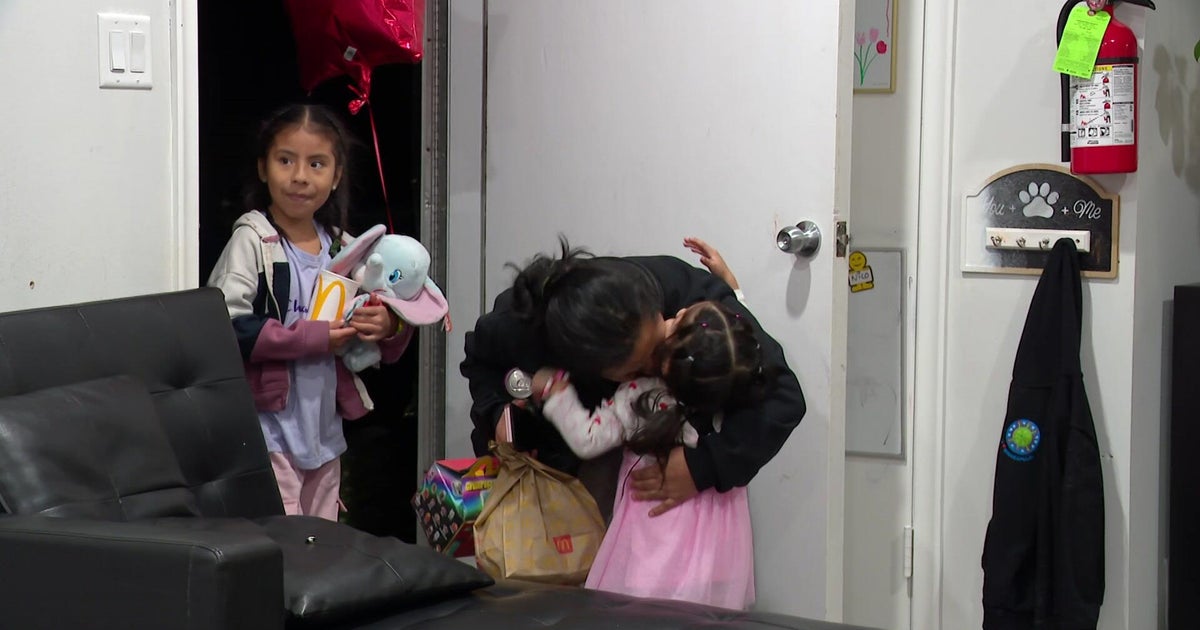More Texas Children Getting Sick With Whooping Cough
DALLAS (CBS 11 NEWS) - At the moment, the only sounds coming from 4-month-old Mason Shepherd are the typical gurgles of a contented baby. But, earlier this summer a horrible cough had his parents worried and thinking the worst.
"It was bad," mom Jennifer Shepherd remembered. "I mean, I honestly didn't know if he could live after that first week. He was turning blue all the time." Shepherd says doctors at Cook Children's Medical Center in Fort Worth told her that her baby boy "was the poster child for pertussis" or as it is more commonly called, 'whooping cough'.
"I was so naïve because when he was admitted I was thinking we'd be there a couple of days. We ended up being there almost three weeks," says Shepherd. "He was so tired of fighting it. That's when I thought he was going to die. He would cough and he would just turn completely blue."
According to infectious disease experts, the virus that causes whooping cough is extremely contagious and is spread from person to person by coughing.
"It gets in the nose and goes down to the airway [and] makes a toxin that kills the lining of the trachea," explained Dr. Donald Murphey, the Medical Director of Pediatric and Infectious Diseases at Cook Children's. "It takes time for that to recover. And once that's started, it takes weeks and weeks and weeks for it to heal up."
According to Dr. Murphey, babies are particularly vulnerable because they are not born with any immunity to the disease and don't begin receiving immunizations until they're two months old.
"They have tiny little airways and it gets very inflamed with whooping cough and then when they cough and they hold their breath and they can't breathe, and then they end up getting hospitalized and sometimes these kids will have enough breathing problems that it can affect the heart and lungs or affect the brain and cause permanent problems."
Mason was diagnosed with whooping cough at 7-weeks-old — just days before he was scheduled to get his immunization. His mother had already received her booster shoot and his older sisters were already immunized, so the family was stunned when he became ill.
"It was horrible," Shepherd said. "I cannot explain how awful it is to see your child go through that and to know that it could be prevented."
Doctors say parents should insist that adults who are in close contact with their infants get the whooping cough booster shot, as the disease is often overlooked in adults. Patients may spread the virus, unaware that they've been infected.
Experts also say older children may need a booster as well. According to Dr. Murphey, the formula for the vaccine changed in the past decade. The current vaccine has fewer side effects; but he says it is also less potent and offers less protection.
"We have had kids die of pertussis in Texas," says Murphey. "Not a whole lot. But, it's happened usually in the midst of an epidemic and we're having an epidemic this summer, so it is serious."
Tarrant County Health officials have reported roughly 350 cases of whooping cough. Dallas County Health officials have reported 191 cases and say their numbers, so far, are not out of the ordinary.
Still, experts are urging parents to take precautions. Practice good cough hygiene by coughing into an elbow and adults should seek medical attention for persistent coughs—even absent the 'whooping' sound, as many adults may be unaware that they are infected.
Expectant Moms are also encouraged to ask their doctors about a vaccine that can be taken in the later stages of pregnancy that would protect the newborn during those critical early weeks.
"Get the shot," says Shepherd. "I know a lot of people are choosing not to vaccinate and I don't look down on them. But, I think for these babies that have no way of protecting themselves against this. It's not fair to them."
Latest News:
Top Trending:







